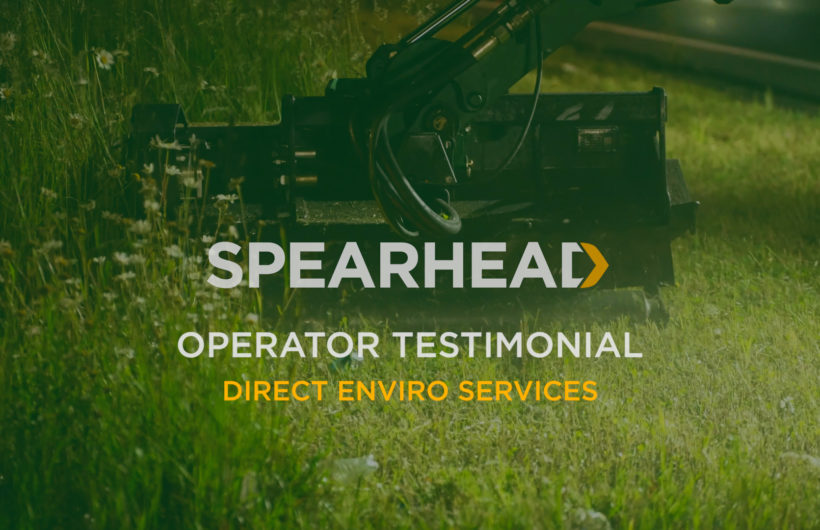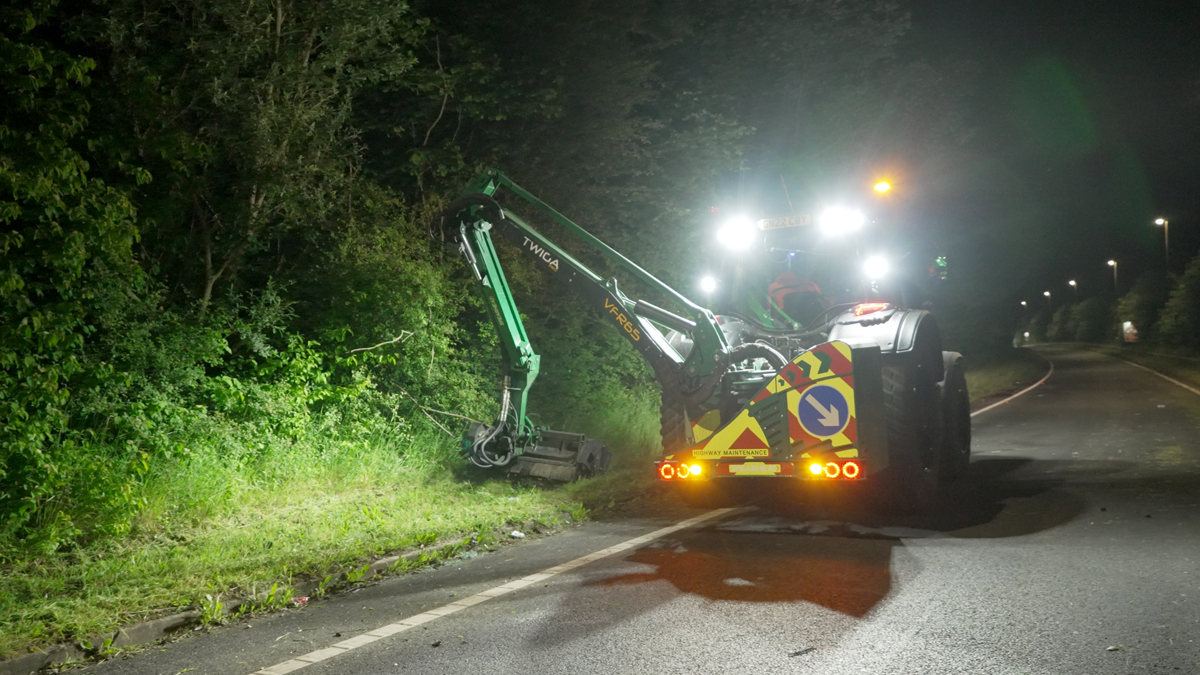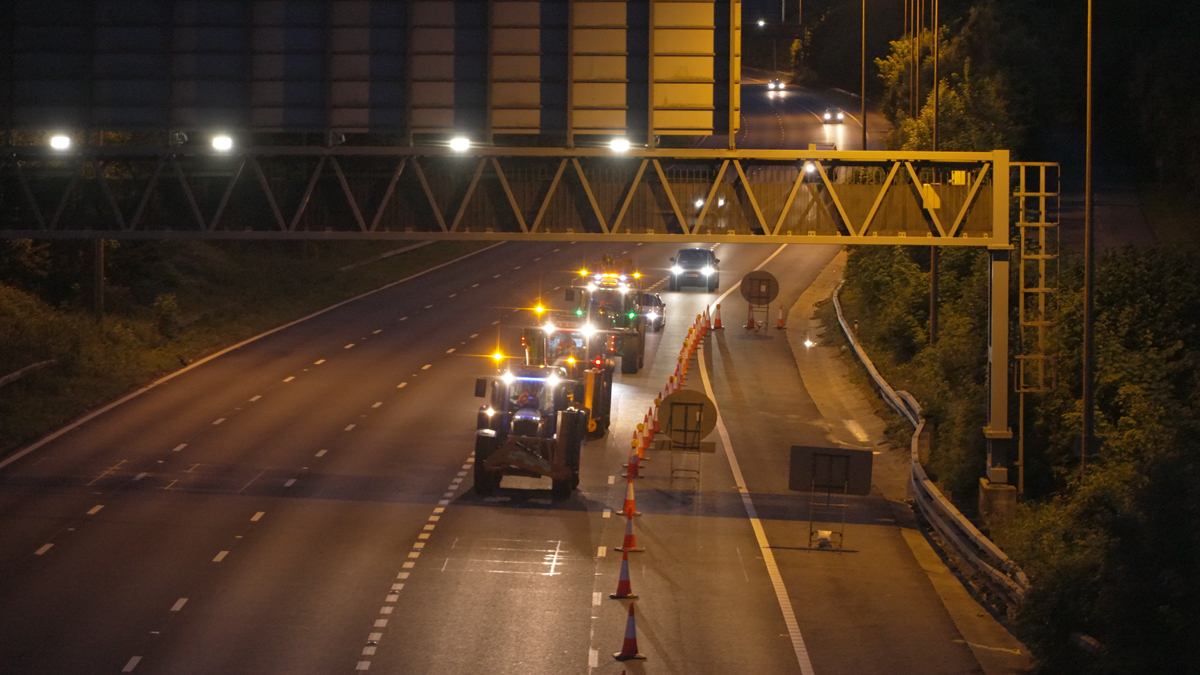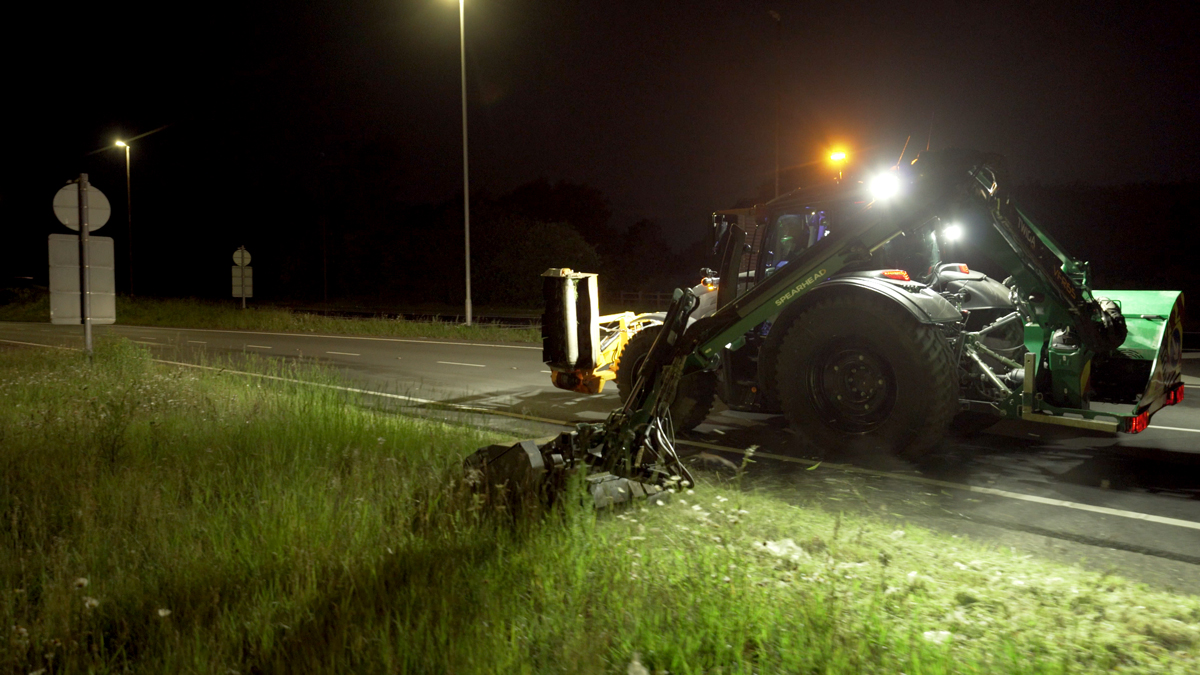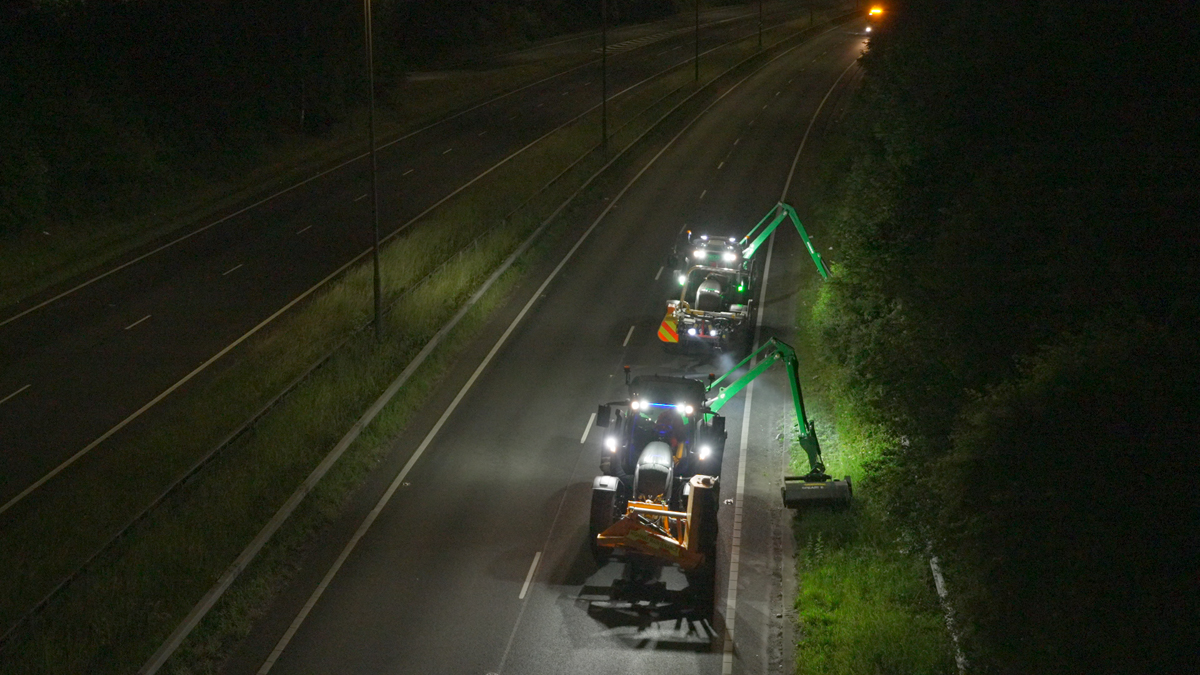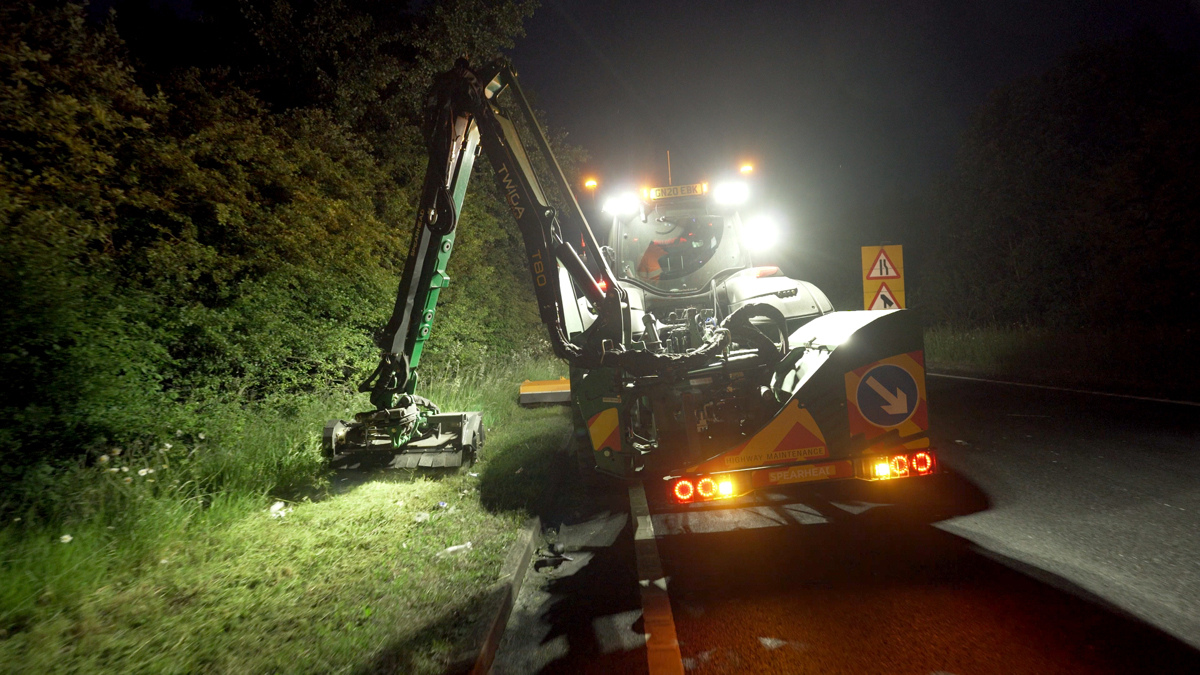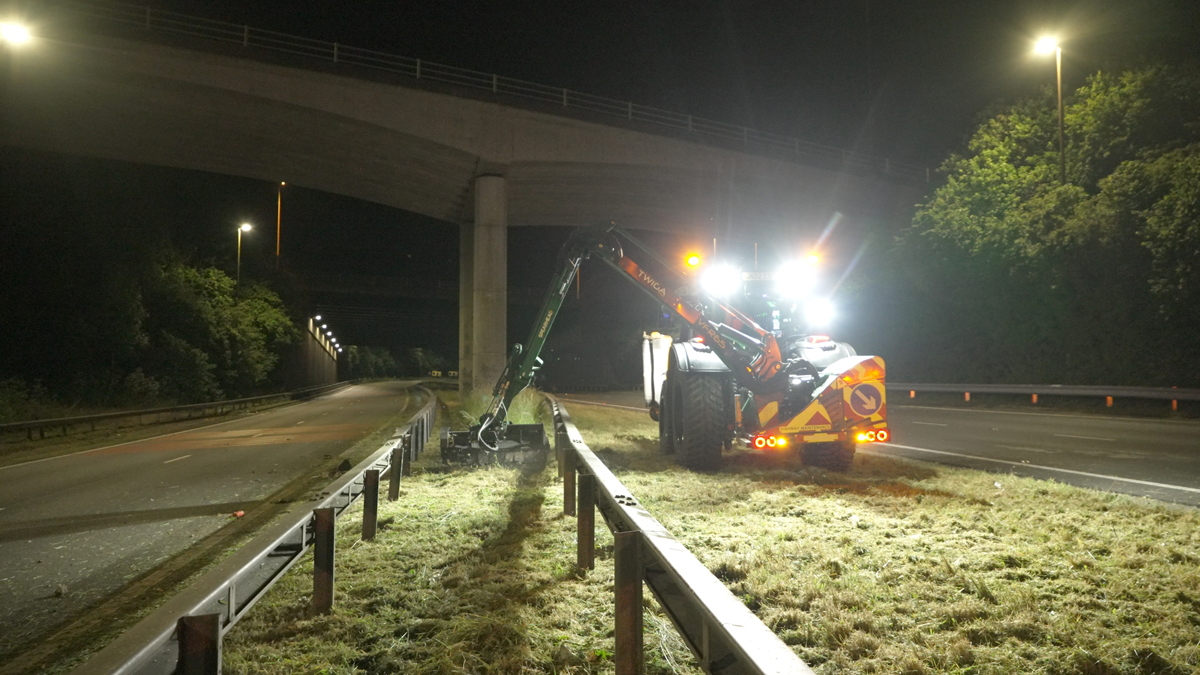How we helped Direct Enviro Services grow 30%
“We have to get it done. Otherwise we must return at the end of the programme and pay for traffic management.”
That’s the stark reality for Will Clarke from Direct Enviro Services. Cutting vegetation on high-speed roads in the South-East, the right equipment determines success or failure.
With the clock always against them, it’s a constant challenge to cut among litter and debris.
“We work to a strict six-month programme with specific sections of road coned off every night. We have to get it done. Otherwise we must return at the end of the programme and pay for traffic management.
We can be working on the hard shoulder at night with just a lorry behind us. It’s quite scary for the lads, so I don’t want breakdowns where they must get out. They just need to keep going.
Litter – and debris such as tyres – provides a constant headache. If you hit something big, it can break your cutting head. I went through four flail heads in our first two years. When it’s over £2,000 a head, that’s expensive. Not to mention the downtime. It was evident I needed a different type of head to deal with debris on the highways,” said Will.
Will formed Direct Enviro Services in 2014 when he was 27.
“When I started Direct Enviro Services, it was literally me and a tractor. My dad helped me with the office side of things. I first bought a bespoke machine to apply Avadex. But I was quiet during winter.
I really wanted to use agricultural equipment to maintain highways. So, I did my research and started contacting companies until I got my first highway job.”
Today, Direct Enviro Services employs a team of six to support Highways England and many county councils. At least 80% of their work involves maintaining vegetation on all high-speed roads in the South-East.
“We’ve got three tractors and they’re each operating 1500 to 2000 hours a year – mostly with Spearhead Twiga hedge cutters. In normal circumstances, a hedge cutter would do something like 200 hours a year – the stuff I put these machines through is not your average farm usage,” said Will.
Initially, Will purchased a second-hand Twiga Orbital from local dealer, RW Crawford Agricultural Machinery.
“I looked at other machines, but I loved the build quality and technology of the Twiga. Other forward reach machines have a weird geometry system. I just didn’t like the way they were designed. And I really liked the Twiga autopilot. You don’t have to use your eye as much – you can literally put the head down and cut,” he said.
A year or so later, Will visited Spearhead in Evesham and spotted an eight-metre Twiga Flex for sale. He decided to buy it. Will also purchased a rotary head to fit onto the Flex – something that hadn’t been tried before.
Will explained: “I needed a stronger head to deal with rubbish, concrete, and stones. Flails have got little teeth in them. They don’t last long on the highways when you’re cutting around lorry tyres and disc callipers. In contrast, if we hit something with the rotary head, it would fold back and not get damaged.”
Whilst the rotary head was a game-changer for Will, the Flex was struggling to handle half a tonne of heavy-weight cutting equipment.
“The rotary head actually cracked the welding on the headstock of the Flex. We knew the combination was a prototype, so we got in touch with Spearhead straight away. They re-designed the entire headstock for us and upgraded the pump. They did a really good job.
We also put a trailer hitch on the back of the Flex. That way, we could go out with the rotary head and a flail head. Switching them takes ten minutes with their quick hitch design,” Will said.
Using Twiga’s rotary head was a turning point for Direct Enviro Services.
“Where a government organisation hadn’t been able to cut the central reservation and it had grown up quickly, we could cut it with the rotary head. Usually, it would take them ten blokes, chainsaws and strimmers to cut 500 metres. We would go in for one night and cut a 4km closure with one machine and one driver – maybe a couple clearing up behind. It saved them money,” explained Will.
With the rotary head transforming his capability, Will wanted to upgrade his second-hand Twiga Orbital. But he had a wish-list of features.
“I wanted to have an Orbital to use in the same way as the Flex. It had to hold the rotary head and I wanted the rotator to be bomb proof like the Flex,” said Will.
Trading in his original Orbital, Will’s ultimate machine was custom-built.
“What we created was a beefy machine that will put up with a lot of stick. And it will get a lot of stick in the coming years,” he said.
Will has prioritised investing in the right machinery for Direct Enviro Services. And it’s paid him back many times.
He explained: “We’ve gained more work due to Twiga, and particularly the rotary head. Our output is 25% higher and it’s helped us grow the business a good 30% to 40% in three years.
We wouldn’t have grown without the rotary head because we might not have done a good enough, or fast enough job. I wouldn’t have had the confidence to say ‘Yes, we can take that on,’ knowing I could achieve it in two days and keep everything else going.
I’m still running my original rotary head. I’ve not had to replace it. That’s a big saving after my experience of flail heads. I still run two flail heads because cutting specifications demand the flexibility of both.”
The Twiga Orbital and rotary head combination has also won many contracts for Will.
“As the Orbital spins 180 degrees, we can cut on both sides. This is a huge safety benefit as we must always cut with the flow of traffic, not blinding drivers with night lights. Other hedge cutters can’t do this,” he said.
Will is now incredibly loyal to Spearhead. It is fundamental to his business.
“After what I’ve been through with Spearhead I wouldn’t look back. The Field Service Manager, Ian Haines at Spearhead, is an absolute legend. Brilliant. His knowledge is unbelievable. And they’re really pushing ahead on Twiga innovation. On the new machines we have added custom joystick options and computer screens in the cab. I really wanted them to do that,” concluded Will. We have also worked together on the new electronic Autopilot system during the course of this season which has again allowed for us to increase output significantly as we move in to 2023.
Find out more about Direct Enviro Services here
